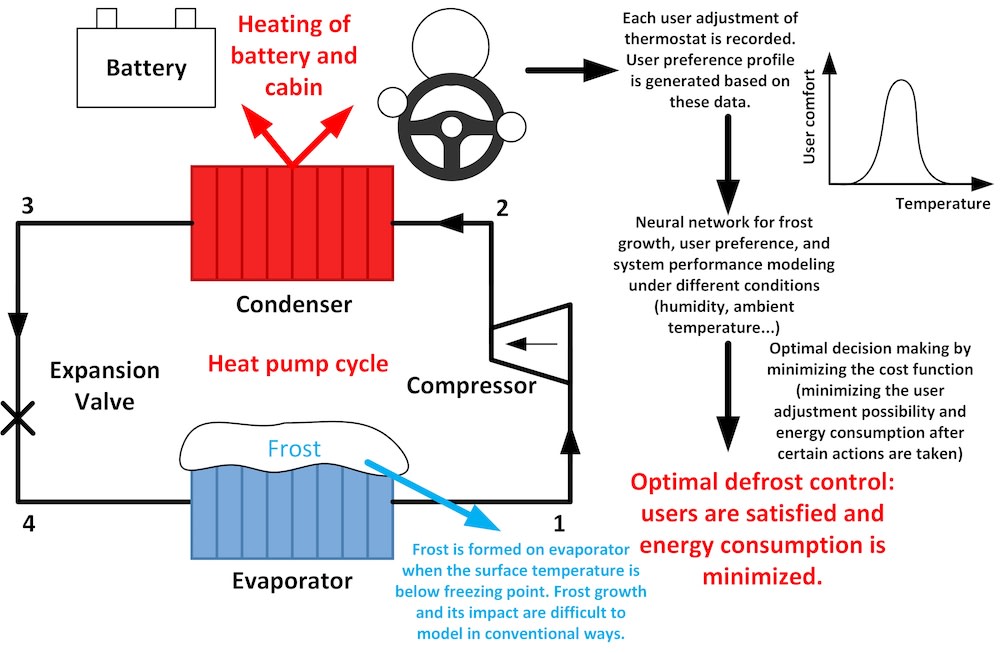Motivation:
Heat pump systems are super efficient compared to most other heating systems such as electric resistance heating. The coefficient of performance of heat pumps is usually 2~3 while that of electric resistance heating is 1. In the era of electric vehicle, the goal of vehicle thermal management is not only keeping the cabin at suitable temperature, but also taking care of the battery temperature. Battery performance degrades significantly at low temperature, while there is no waste heat from the engine available for heating in a full electric vehicle. Heating by electric resistance heating can drain the battery quickly and the electric vehicle driving range can be shortened by half on a cold day. The high heating efficiency of a heat pump system makes it a great candidate for electric vehicle cabin and battery heating, and a heat pump can actually be achieved by reversing the air conditioning system installed in every single car.
However, heat pump systems are not perfect. Defrost control is one of the most challenging problems with heat pump systems. Frost formed on the evaporator when the surface temperature is below the freezing point has significant impact on the heat transfer efficiency and thus the system efficiency. Therefore, defrosting is necessary and heat pump heating will be interrupted during defrosting process. When the defrosting process is finished, system returns to heating mode. However, defrosting process may result in reduced user comfort and, possibly, "battery comfort". Good defrost control decision making needs to consider both user comfort and energy efficiency.
Current commonly used defrost control strategies include the simplest time control (when ambient temperature is below freezing point, heating and defrost process will be started alternatively for fixed duration) and demand control (control based on temperature measurements with some complicated logic). They don’t take into account the user preference and are not robust or noise immune, which makes them look dumb sometimes. In this project, I am developing a more intelligent defrost control for heat pump systems which makes optimal defrost decisions to minimize energy consumption and make user satisfied (minimized user adjustment) as well.
System components:
1. Heat pump with auxiliary heating (resistance heating; optional)
2. A smart thermostat that is capable of recording user adjustment data (this is where user preferred temperature range is learned; also optimal control is derived for energy consumption minimization while the temperature bottom line of user is satisfied)
3. Cabin and battery, ambient environment, and the user
Approach:
Frost growth and its influence on the system efficiency are extremely difficult to model in a traditional way. A neural network is trained to model the heat pump performance with frost growth as well as user preference in this project. System states are estimated using the above model based on very limited and noisy sensor measurement. Cost function of the system includes the penalty for the expectation of energy consumption and user adjustment. Optimal defrost control actions are achieved based on minimizing the cost function.
Like this entry?
-
About the Entrant
- Name:Jingwei Zhu
- Type of entry:individual
- Software used for this entry:Matlab
- Patent status:none

